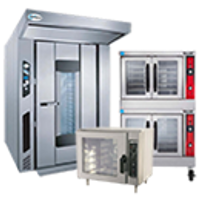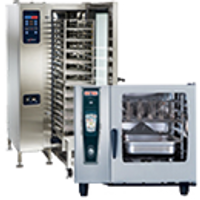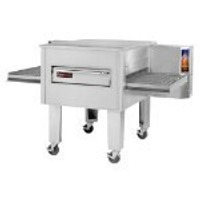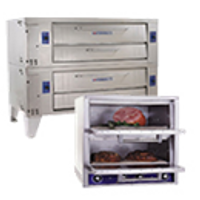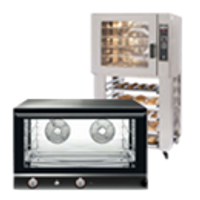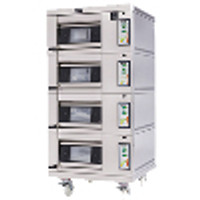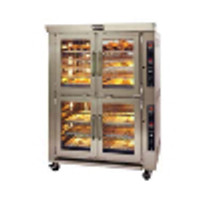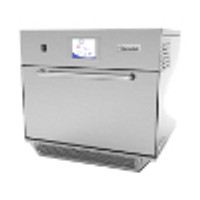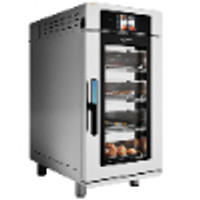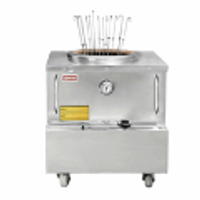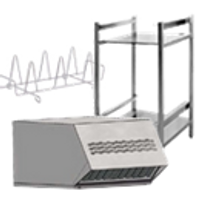Commercial Oven
FAQs
Culinary Depot offers professional delivery and installation from experienced technicians to give you peace of mind!
Commercial Ovens
Commercial ovens are fundamental appliances in professional kitchens, designed for high-volume cooking, baking, roasting, and broiling with consistent temperature control. These ovens are built to withstand continuous use while delivering precision cooking results, making them ideal for restaurants, bakeries, cafeterias, and catering services.
The commercial oven category includes a wide variety of models such as convection ovens, deck ovens, conveyor ovens, combi ovens, and pizza ovens. Each type serves specific cooking purposes — convection ovens offer even airflow for baking and roasting, while deck ovens are commonly used for artisan bread and pizzas. Conveyor ovens excel in high-volume fast food operations, and combi ovens combine steam and convection cooking for versatile applications. Many units feature programmable digital controls, multiple cooking chambers, and energy-saving designs for operational efficiency.
Leading Brands for Commercial Ovens
When selecting a commercial oven, choosing a trusted brand ensures performance, durability, and long-term efficiency. Some of the top brands include:
- Blodgett
- Vulcan
- Garland
- Bakers Pride
- Hobart
These brands are trusted for their performance, innovation, and energy-efficient designs across professional foodservice operations.
Commercial Ovens for Different Foodservice Settings
Commercial ovens are essential across various foodservice environments, each requiring specific features based on their cooking needs:
- Restaurants: Convection ovens and combi ovens for versatile cooking of proteins, vegetables, and baked goods.
- Bakeries: Deck ovens for artisan bread and convection ovens for pastries and cookies.
- Pizzerias: Stone deck and conveyor ovens for high-speed pizza production.
- Catering Kitchens: Combi ovens for batch cooking and keeping food warm before service.
- School Cafeterias: High-capacity convection ovens for bulk meal preparation.
- Fast Casual Chains: Conveyor ovens for streamlined, consistent cooking in fast-paced service environments.
Key Factors to Consider When Purchasing a Commercial Oven
- Oven Type
- Capacity and Size
- Temperature Control
- Ease of Cleaning
- Ventilation Requirements
- Cooking Speed
- Automation Features
By carefully selecting a commercial oven that matches your kitchen’s capacity, cooking style, and energy needs, you can ensure efficient operations, consistent food quality, and long-term durability for your foodservice establishment.
